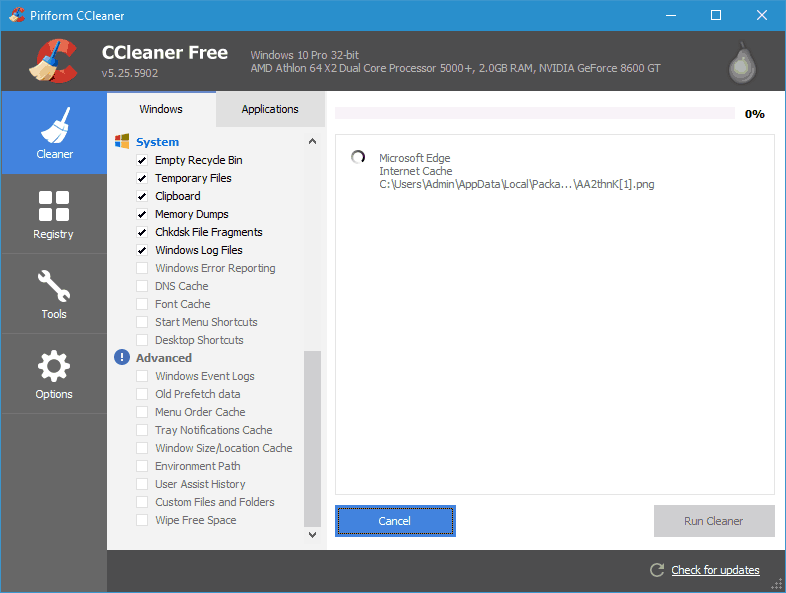



Most PCs still have a mechanical hard disk drive (HDD), and unlike your CPU and RAM, HDDs are painfully slow. Your PC’s hard disk is its long-term memory - where it stores Windows, your programs, and all your personal files. Check the specifications of your PC to make sure your new RAM module will fit, or ask an expert to help you. Desktop PCs should be able to take RAM upgrades - just open up the case and locate your memory slots. If you’re upgrading a laptop, make sure it’s eligible for RAM upgrades, since not all laptops are.
How to delete junk files computer how to#
RAM is more affordable than it used to be - check our guide to upgrading RAM, as it’s got everything you need to know about how to do this yourself. Upgrade your RAM if you have less than 4 GB of RAM in your PC.Ĩ GB of RAM is enough, unless you’re playing intensive games or working with large files and need a really powerful computer. Without enough RAM, your PC can’t handle everything you’re doing, and its performance suffers. That will slow down your browser and leave barely enough room for Windows itself, let alone any other program. Having multiple tabs open at once can easily push RAM use over 2 or even 3 GB. Resource-intensive apps like video editing, gaming, Photoshop, programming apps, and online streaming platforms.īrowsers. That’s mostly because of two types of applications: Modern computing generally requires a minimum of 4 GB of RAM. Think of RAM as your PC’s short-term memory. Your PC uses RAM, or random access memory, to manage all active tasks and apps. From a RAM upgrade to a CPU overclock to a thorough physical cleaning, the following techniques will give you everything you need to get your computer back in tip-top shape. Here, we’ll show you how to speed up your computer with a full set of performance-optimization tips, tricks, and tweaks.


 0 kommentar(er)
0 kommentar(er)
